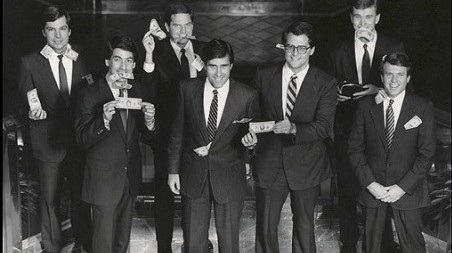What Mitt Romney Did at Bain Capital Was Not Free Enterprise

While the mainstream media agonizes over the "gotchya politics," leaving no stone unturned, one major detail of the Bain Capital story has gone unexamined: the fact that at Bain Capital, Mitt Romney profited from federal bailout money-- and that's not free enterprise.
Amid the controversy following the Obama campaign's attack ad on Mitt Romney's record at Bain Capital, there has emerged a consensus, shared even by many Democrats, that attacking capitalism or free enterprise is wrong. In a campaign ad of its own, the Romney campaign asks, "Have you had enough of President Obama's attacks on free enterprise?" Meanwhile on CNN, former 2012 presidential hopeful, Newt Gingrich opined: "We found out when we got in a fight with Mitt Romney over this that it didn't work. People understand free enterprise. People realize that sometimes you succeed, sometimes you fail, but they refuse to take a one-sided view of it."
But what happened at Bain Capital under Mitt Romney wasn't free enterprise at all. The company was rescued with a federal bailout of $10 million in forgiven loans in a deal that profited Mitt Romney and other Bain executives to the tune of $4 million. As Newt Gingrich said, sometimes you succeed, sometimes you fail, but if the government intervenes to save you when you fail, then you've got the government, not markets, picking winners and losers. It's not free enterprise. Free enterprise would have let Bain take the $10 million hit. Instead, with Bain, you have an ugly hybrid system that critics call "crony capitalism," in which corporate profits are privatized, but corporate losses are socialized and spread out across society.
If it's wrong to rhetorically attack free enterprise, as Romney's defenders argue, then what are their thoughts about Romney's actual subversion of free enterprise via special government privileges that no small business would ever get? If conservatives believe the "social safety net" for poor people is unsustainable and creates perverse incentives, what of a "corporate safety net" for big businesses like Bain? And what do all these sudden champions of free enterprise think about Mitt Romney's continuing support for government-funded bailouts of big financial institutions, including the TARP bailouts?
Romney's critics don't get a free pass either. If Mitt Romney's actions don't exemplify the free enterprise his defenders hold inviolable, neither do President Obama's actions exemplify the progressive social platform that his own supporters believe in. While defending his attack ads on Mitt Romney's record at Bain, Obama recently said, "When you’re president, as opposed to head of a private-equity firm, then your job is not simply to maximize profits. Your job is to figure out how everybody in the country has a fair shot." But if Obama's job isn't to maximize Wall Street's profits, why is Wall Street paying him like it is? Big TARP recipients (which then-Senator Obama voted for) like Goldman Sachs, JPMorgan Chase & Co, Citigroup, and Morgan Stanley were some of President Obama’s biggest contributors in 2008.
Both Mitt Romney and President Obama represent neither free enterprise, nor progressive socialism. In word and deed, they actually both represent a similar brand of corporate welfare statism that rewards the lobbying of big businesses, especially big finance, with special privileges and zero liability for losses, while allowing them to pocket all of their profits. In the world of both these major party standard bearers, "All animals are equal, but some animals are more equal than others." Whatever that is, it isn't free enterprise.



